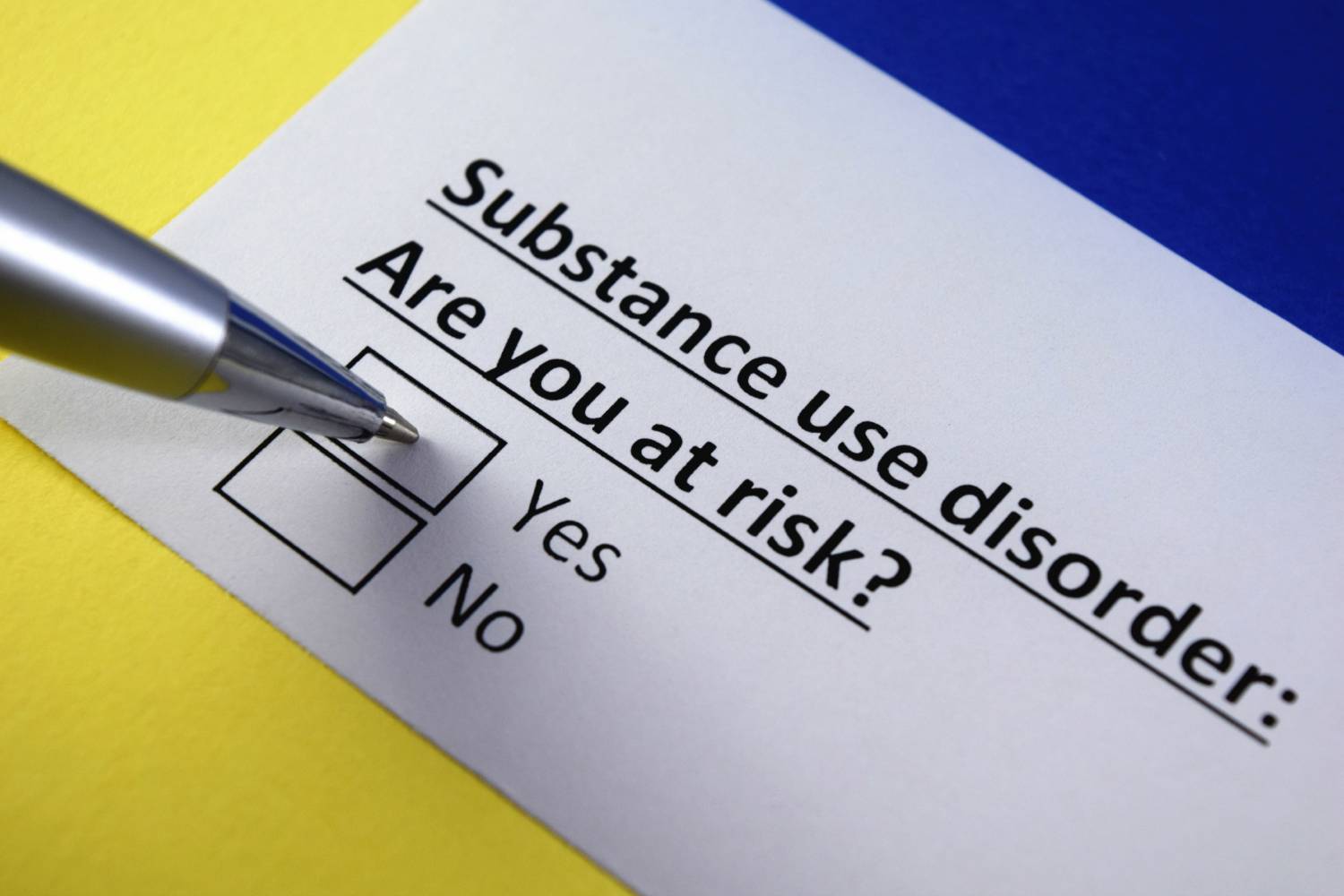We all grapple with challenges in our lives. And sometimes, people turn to substances as a way to cope, resulting in the development of a Substance Use Disorder (SUD).
The importance of understanding this condition cannot be understated. In this ever-inclusive, compassion-driven world, we ought to understand that mental health issues, like SUD, are medical conditions, not moral failings.
In this article, we’ll explore what Substance Use Disorder is, its symptoms, and the factors contributing to it. Further, we’ll discuss how we can provide support to individuals facing this challenge and where to seek help. Your journey towards understanding starts here.
What Is Substance Use Disorder?
If you’ve ever tried to understand addiction, you’ve probably come across the term ”Substance Use Disorder” (SUD). It sounds pretty technical, right? But really, it’s just a way for professionals to talk about a pattern of substance use that’s causing significant problems in a person’s life.
Think about alcohol or drugs interfering with work, school, or relationships. Or perhaps even causing health problems or legal issues. If any of these sound familiar, we’re likely looking at a case of SUD.
Now, within this broad umbrella of SUD, there are two terms that you might find — substance dependence and substance addiction. Let’s dive into those.
What Is Substance Dependence?
Substance dependence can be a bit tricky to understand, but in simple terms, it’s when a person becomes physically dependent on a substance. Their body has become so used to the substance that they need it to feel “normal.”
Without it, they might experience withdrawal symptoms — these can be anything from feeling anxious or irritable to having physical symptoms like shaking, sweating, or nausea.
What Is Substance Addiction?
Now, substance addiction (also known as drug addiction) is a notch higher on the severity scale. It’s not just about the body needing the substance. It’s more about the mind.
Here, the person has an intense craving or compulsion to use the substance, even when they’re aware of the negative consequences. In other words, despite knowing the substance is causing harm, the desire to use it overshadows everything else.
What Substances Are Associated With Substance Use Disorder?
A wide array of legal and illicit substances can lead to the development of a Substance Use Disorder. These include alcohol, opioids (such as heroin and prescription pain medications), stimulants (like cocaine and methamphetamine), hallucinogens (LSD, for example), inhalants, sedatives, hypnotics, and anxiolytics (such as benzodiazepines).
It’s also important to note that Substance Use Disorders can develop from the use of substances that some might not consider harmful, like cannabis or prescription drugs.
The American Psychiatric Association (APA), through its Diagnostic and Statistical Manual of Mental Disorders (DSM-5), provides detailed criteria for diagnosing SUD for different substances, including cannabis, opioids, hallucinogens, stimulants, alcohol, and others. The DSM-5 makes it clear that SUD is a mental illness, highlighting the substantial overlap between mental health and addiction.
The Impact of Substance Use Disorder on Mental Health
The intricate relationship between mental health and substance use can’t be overstated. The National Institute on Drug Abuse (NIDA) and the Substance Abuse and Mental Health Services Administration (SAMHSA), part of the U.S. Department of Health and Human Services (HHS), have both highlighted this complex interaction.
Mental health disorders such as depression, anxiety, ADHD (attention-deficit/hyperactivity disorder), and PTSD (post-traumatic stress disorder) often co-occur with SUD. This co-occurrence can exacerbate both conditions, leading to larger amounts of substance use and increased mental health symptoms.
What Are the Signs of Substance Use Disorder?
Recognizing the signs of Substance Use Disorder is crucial in seeking timely help.
Here are some common signals you may observe:
Increased Tolerance
Increased tolerance is a clear red flag. As a person continues using a substance, their body adjusts, requiring more to achieve the same effect.
This escalation isn’t just about needing one more drink at a party; it’s a systemic change in how the body responds to the substance, making substance use more dangerous and withdrawal more intense.
Neglect of Responsibilities
As Substance Use Disorder progresses, the substance becomes the person’s main priority. This obsession often results in missed deadlines at work, skipped classes, or ignored household chores.
Everyday responsibilities are abandoned in pursuit of substance use, which disrupts a person’s daily life and can have severe consequences in their professional and personal relationships.
Withdrawal Symptoms
Withdrawal symptoms occur when a substance-dependent person attempts to quit or cut back. These can be physical symptoms like nausea, shaking, and sweating or psychological symptoms like anxiety, irritability, or depression. The intensity of withdrawal can be terrifying, often leading individuals back to substance use just to feel normal again.
Failed Attempts to Quit
Despite the adverse effects, a person with Substance Use Disorder may find quitting or reducing their substance use incredibly challenging. They may express a strong desire to change and even make multiple attempts.
Yet, substance dependence’s physical and psychological grip often leads to relapse, highlighting the importance of professional help and support in recovery.
Persistent Use Despite Known Harm
One of the most alarming signs of SUD is persistent use despite awareness of harm. Individuals continue to use substances even when it’s causing significant health issues, ruining relationships, or leading to financial troubles.
This persistent use, even in the face of negative consequences, underscores the compulsive nature of Substance Use Disorder and the critical need for intervention.
What Contributes to Substance Abuse?
Understanding the factors contributing to Substance Use Disorder is crucial. These contributing elements can vary from person to person and are typically a mix of genetic, environmental, and psychological factors. Each of these elements interplays uniquely in every person’s life, leading to the complexity of addiction.
Genetic Factors
Genetics can play a significant role in the development of Substance Use Disorder. Research indicates that addiction has a strong hereditary component.
If a person has a close relative, like a parent or sibling, who struggles with substance use, their risk of developing a similar disorder is higher. However, it’s essential to remember that genetics alone don’t predetermine addiction. Instead, they influence susceptibility to it.
Environmental Factors
Environmental factors significantly impact a person’s likelihood of substance use. Individuals exposed to environments where drug use is prevalent or normalized have a higher risk of developing Substance Use Disorder.
Such environments might include households, peer groups, schools, or communities. Furthermore, exposure to trauma, high-stress levels, or the lack of a supportive social network can contribute to a higher risk of substance use.
Early Use
The age at which a person first uses drugs or alcohol can affect the likelihood of developing Substance Use Disorder. Studies suggest that using substances at a young age can interfere with normal brain development, leading to long-term mental and physical health effects. Early use often acts as a gateway, increasing the risk of more severe substance use in the future.
Social Pressure
Social pressure is a significant factor contributing to the initiation and continuation of substance use, particularly among younger individuals. The desire to fit in or to escape criticism or judgment can lead to the experimental use of substances. This occasional use can gradually morph into a routine and ultimately result in Substance Use Disorder.
Easy Availability and Accessibility
When substances are readily available, the risk of substance use increases. This accessibility could be from living in an area with a high prevalence of drugs or alcohol, or it might involve having friends or family members who use substances regularly. The ease of obtaining substances can lower the barrier to initial experimentation and continued use.
Inadequate Coping Skills
Individuals may turn to substances as a means to cope with life’s stressors, such as personal problems, financial difficulties, or career challenges. Without the development of healthy coping strategies, the reliance on substances for stress relief can become a pattern. This coping mechanism can ultimately lead to the development of Substance Use Disorder.
Mental Health Disorders
A strong correlation exists between mental health disorders and Substance Use Disorder, creating what experts refer to as a dual diagnosis. Conditions like depression, anxiety, PTSD, and ADHD can make an individual more susceptible to substance abuse.
Some people may turn to drugs or alcohol to self-medicate, managing symptoms of their mental health conditions. However, this often leads to a vicious cycle where substance use worsens mental health symptoms, leading to further use.
Lack of Knowledge
Lack of awareness about the dangers of substance use and addiction can also contribute to Substance Use Disorder. People might underestimate the risk of addiction when they start experimenting with drugs or alcohol, especially if they’re young. Education about the dangers of substance use, including the risk of addiction, is crucial for prevention.
Understanding these factors makes it clear that no single cause leads to Substance Use Disorder. Instead, it is a complex interplay of various elements. By acknowledging these factors, we can better comprehend the struggles faced by those with Substance Use Disorder, empathize with their journey, and offer the support they need during their recovery process.
Remember, substance use is not a moral failing; it’s a complex health issue requiring understanding, compassion, and comprehensive treatment.
What Is the Best Way To Support Someone With Substance Use Disorder?
Supporting someone with Substance Use Disorder requires understanding, patience, and appropriate actions. It’s not always easy, but your support can significantly impact their journey to recovery.
Below are some of the best ways to provide that support:
Educate Yourself About Substance Use Disorder
Understanding Substance Use Disorder is the first step in providing meaningful support. Learn about the nature of addiction, its causes, its impacts on mental and physical health, and the available treatment options.
The more knowledge you have, the more empathetic and effective your support will be. Knowledge will also help dispel myths or misconceptions about addiction, allowing you to interact without bias or judgment.
Practice Empathy and Understanding
Empathy goes a long way when dealing with individuals struggling with Substance Use Disorder. Try to understand the person’s feelings and experiences without criticism or judgment.
Acknowledge their struggle without enabling their substance use. Express your concern about their well-being in a caring and understanding way, focusing on their potential to recover rather than their current situation.
Encourage Treatment
While the decision to seek help must ultimately come from the individual, you can encourage this step. Discuss the benefits of professional help and assure them of your support throughout the treatment process.
You can assist in researching different treatment options and centers, like Soba Recovery, to help them make an informed decision.
Maintain Healthy Boundaries
When supporting someone with a Substance Use Disorder, it’s essential to maintain healthy boundaries to protect your own mental and emotional health. Let the person know what you can and can’t do to support them, and be firm in upholding these boundaries.
This might involve refusing to provide money that could be used for substances or declining to cover up for their behaviors related to substance use.
Offer Emotional Support
Living with Substance Use Disorder can be an isolating experience. Offering emotional support to your loved one can make a significant difference in their recovery journey.
Listen to them, show that you care about their feelings, and reassure them they’re not alone. This might involve simply being there for them, encouraging open conversations, or participating in activities that help them relax and feel connected.
Reinforce Positive Behaviors
Recognize and reward the efforts they’re making toward recovery. Positive reinforcement can go a long way in motivating individuals to stick with their treatment plan and make necessary lifestyle changes.
This could be acknowledging their commitment to attending therapy sessions, their courage in discussing their struggles, or even their effort to reduce substance use.
Seek Professional Advice
Substance Use Disorder is a complex issue, and it’s okay not to have all the answers. Reach out to healthcare professionals or addiction specialists for advice. They can provide guidance on how best to support your loved one, help you understand what they’re going through, and recommend appropriate treatment options.
They can also offer resources to help you cope with the challenges of supporting someone with a Substance Use Disorder. For example, joining a support group can provide an outlet to share experiences and learn from others in similar situations.
Can Behavioral Therapy Help With Substance Use Disorder?
Behavioral therapy can modify attitudes and behaviors related to drug use, enhance healthy life skills, and support medication and treatment adherence.
Are Prescription Drugs a Concern in Substance Use Disorder?
Yes, misuse of prescription drugs like opioids and benzodiazepines can lead to Substance Use Disorder and dangerous health conditions, including drug overdose.
How Do Inpatient and Outpatient Treatments Differ?
Inpatient treatment involves full-time living at a facility, while outpatient treatment permits individuals to live at home and attend daytime treatment.
Where Can I Find More Information on Substance Use Disorder?
Fact sheets and information are available on the NIDA, SAMHSA, and other .gov health websites. Consult a healthcare professional for personalized advice.
Getting Help With Soba
Navigating the road to recovery from a Substance Use Disorder can be challenging, but it’s essential to remember that you’re not alone. At Soba Recovery, we understand the intricate dynamics of addiction, and we believe in the power of comprehensive treatment to foster healing and sustained recovery.
We offer individualized treatment plans crafted to address each person’s unique needs and circumstances. Our compassionate team, comprising medical professionals and addiction specialists, works tirelessly to provide a supportive and nurturing environment that facilitates recovery. We take pride in our holistic approach, which combines various therapeutic modalities such as individual counseling, group therapy, family therapy, and skills training.
At Soba Recovery, we’re more than just a treatment center — we’re a community. Our clients and their families find strength and support from our team and each other. We stand together in the fight against addiction and celebrate every victory, no matter how small it may seem.
Don’t let Substance Use Disorder dictate your life. We invite you to reach out to us today and discover how we can support your journey toward recovery. We believe in you, and together, we can help you regain control of your life. Your story is far from over, and with Soba Recovery, a new chapter awaits.
Recovery starts with a call. Contact Soba Recovery today to discuss your options and start your journey toward healing.
Sources:
What Is a Substance Use Disorder? | American Psychiatric Association
Drug addiction (substance use disorder) – Symptoms and causes | Mayo Clinic





